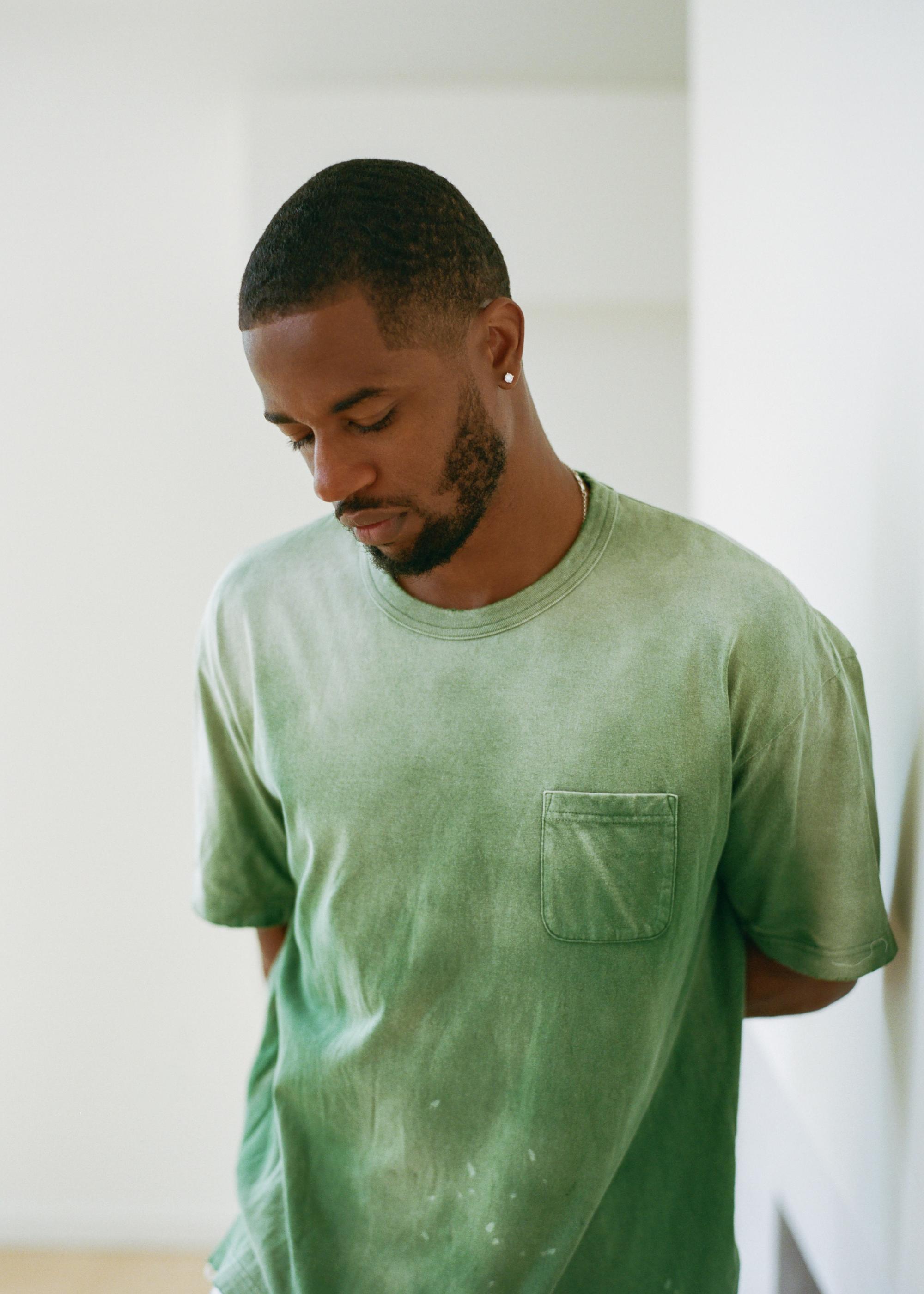
Portrait by Nabil Elderkin for PIN–UP.

Portrait by Nabil Elderkin for PIN–UP.
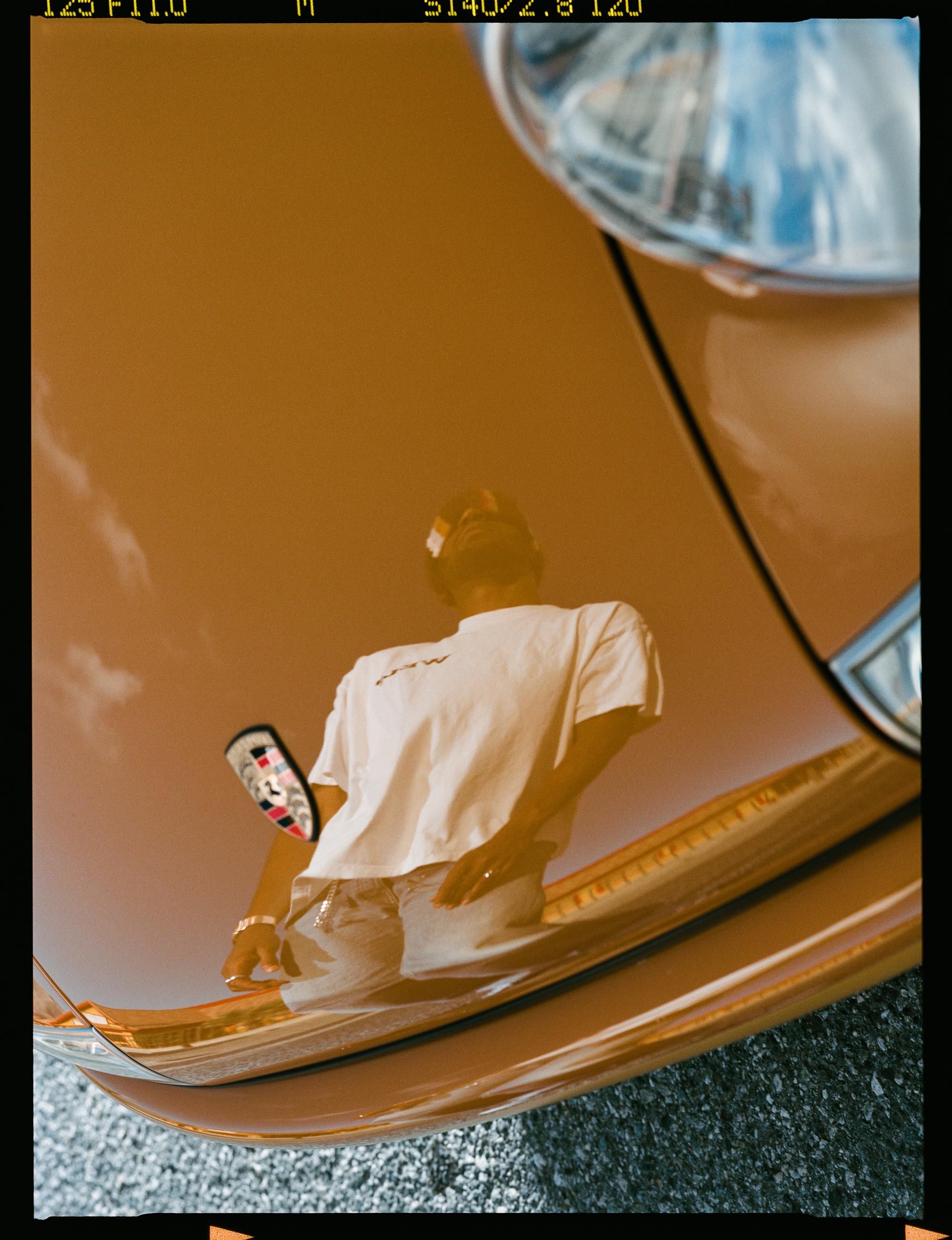
Portrait by Nabil Elderkin for PIN–UP.
When Kendrick Lamar and his longtime collaborator Dave Free announced their “at service company” pgLang in the spring of 2020, they did so with a short film starring Yara Shahidi, Baby Keem, and Lamar, and a wraparound ad in the Los Angeles Times. Mimicking the paper’s front page, they declared it The pgLang Times in a Blackletter font, with a birds-eye-view image of people lying in grass. In the film, Keem and Shahidi stare into the sun, revealing a montage of a knife game, eggs frying, and a group of teenagers on a bus staring at their phones. Free, an Inglewood-born filmmaker and former president of Top Dawg Entertainment — the record label that’s released all of Lamar’s albums plus those by SZA, Jay Rock, Ab-Soul, and Schoolboy Q — later admitted the film didn’t have all that much to do with their new company. What other creative businesses launch without a product or clear mission statement? It pointed to how Lamar and Free’s vision of position pgLang as a “multilingual” — aka multidisciplinary — enterprise that breaks free from traditionally rigid corporate identities. Spanning film, products, fine art, and music, pgLang was “designed to be artist-friendly above all else and embrace both quality and unconventional concepts,” as they explained in the first entry on the company’s website. Through pgLang so far, Free has written and directed ads for Calvin Klein; collaborated with Converse; produced several short films; directed music videos for Baby Keem and Lamar; and most recently, released a new edition of minimalist cell phone without a color interface or access to the Internet and social media — “just a phone,” as they succinctly describe it. Below, Free reflects on collaboration, language, and switching things up.

Orange Soda, (2019) by Baby Keem. Directed by Dave Free.
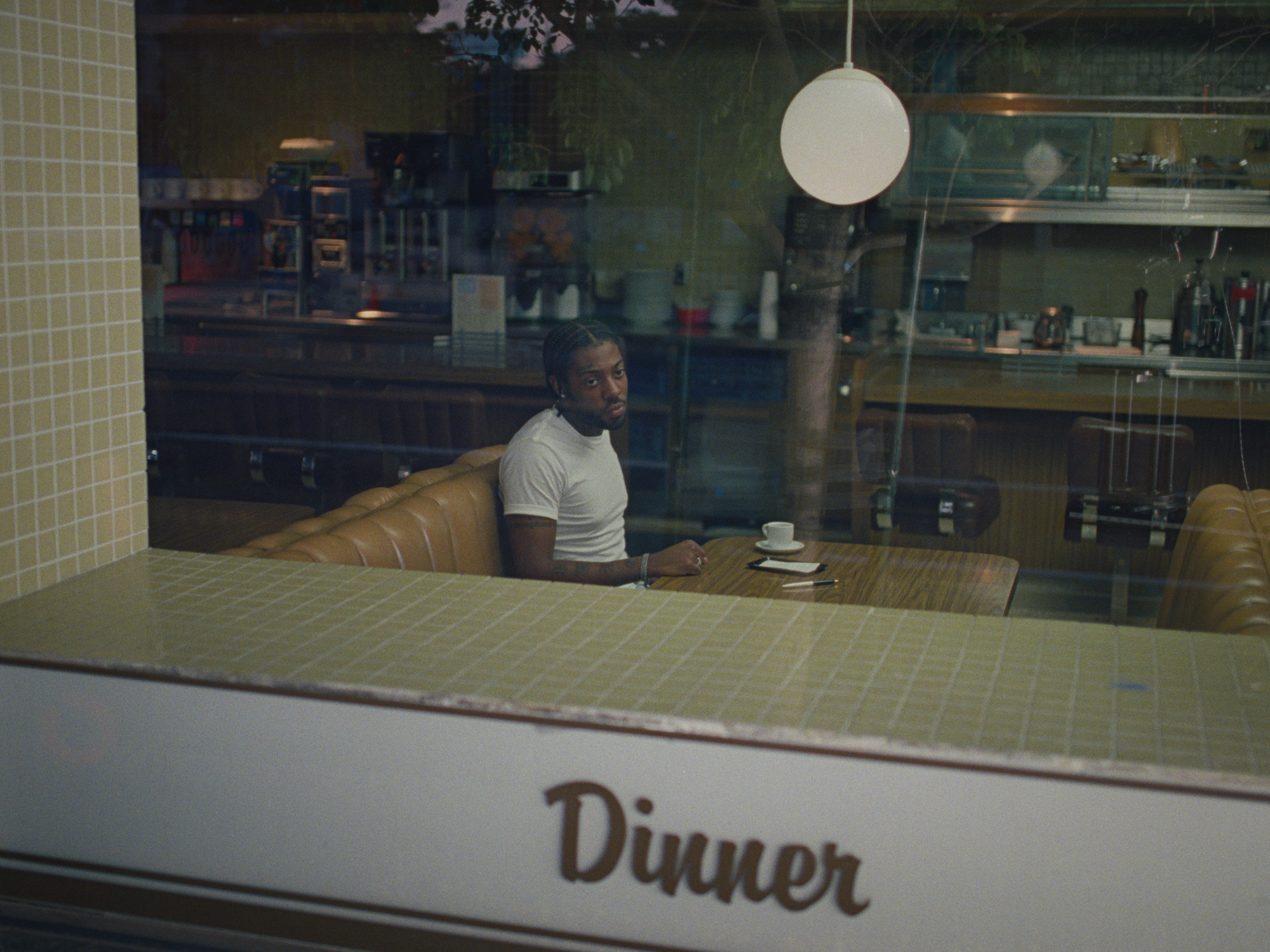
Solo for Calvin Klein (with Brent Faiyaz), (2021). Directed by Dave Free.
Emmanuel Olunkwa: What feels the most urgent to you right now, in terms of your creative practice?
Dave Free: Music. It’s the core of the business, and pgLang is in a unique position as far as how it could morph into different mediums — next is film, TV, products, and our creative agency. We hope to be nimble for the future.
What would you say that the brand is?
The brand is a communication company — we tell stories; we communicate between artists and establishments; we communicate that taste is interchangeable between fields. Branding pgLang correctly is extremely important. We wanted the company to be ambiguous to give ourselves more room to grow and experiment. Creative companies haven’t really worked like this before because they usually have a specific story and aesthetic, but we are taking a different approach.
What was your experience working as a record executive?
My job back then was purely to develop artists and help them in the marketplace. It’s a very exciting business, but I quickly learned what I did and didn’t like about it. If you’re working in music, you’re mostly focused on what’s happening in music. It feels like you have blinders on and you’re just trying to get to the finish line as quickly as possible. I was interested in pivoting away from that, looking at artists as startups and taking my own art more seriously.
I was thinking about how Kendrick talked about growing up in environments of gang mentality in Compton and having to learn certain nuances and lingo to survive. There’s something really powerful about that, a structure where survival fundamentally depends on performing in a specific way, which you can then apply to anything you do in life. It’s an instinctual and intuitive skill that not everyone can learn. How did you know that music was worth pursuing? It seems like you understood it as a system that you could scale.
I love how you position this question in connection to language. It’s really about a universal, instinctual element of body language — it taught us how to navigate growing up in these places. I don’t blame the people who chose to avoid scenarios that require these survival mechanisms, but they taught us so much about ourselves and how important it is to make content that connects to feeling. You can be from anywhere in the world and still understand that universal language of danger. You can feel the tension building or the love and positivity from miles away. Everything we’ve been through — our struggles and our language — makes us think about how we can best reach people in the hood. We try to elevate those who are disenfranchised by communicating with them on a different plane.

Dave Free, creative collaborator with Kendrick Lamar, and co-founder of pgLang, a multi-disciplinary creative services company, posing on top of a wind turbine in Los Angeles. Portrait by Nabil Elderkin for PIN–UP.
How has the development of technology influenced how you approach business? Kendrick Lamar’s good kid, m.A.A.d city came out in 2012, and shortly after that artists started to have these direct channels to their audiences through social media.
I started working in music in 2004. [Laughs.] And, when the thing that you’ve made meets the right moment for it to be distributed correctly because there’s a system and strategy in place, I call it the arrival. Before social media you couldn’t just throw stuff at the wall — music distribution was more traditional and there were many rules. Everything changed with the mixtape era and Lil Wayne, who we have to give a lot of credit to. He was the pinnacle of the Internet age because he broke the rules. It started with the freestyles he did with Sqad Up, which they released themselves — it broke the traditional distribution format of radio and physical unit sales and changed how artists could get their music heard. We were obviously also motivated by Jay-Z and Nas.
When did you know it was time to start your own company?
When music started to feel like a job. I figured I would be more effective in a role that allowed me to take on more tasks. I was influenced by a lot of my friends who worked in different industries. I was so used to having the same types of conversations with people who worked in music, but my other friends and I were talking about AI, crypto, art, commerce, and platforms. I started investing in different companies and ventures that I didn’t have to be a part of day to day. I became a student by doing internships and weeklong work intensives. I wanted to free up my time to create and develop with Kendrick. We were thinking a lot about how to create in the image of who we are. We wanted to dream, wake up, and do it.
[Laughs.] Sign me up. Dreaming with a business strategy in mind.
If we come up with a plan and there’s no direct correlation to something philanthropic, whether that’s helping someone, or building a sustainable brand identity, then we don’t do it. We use our gut as our compass.
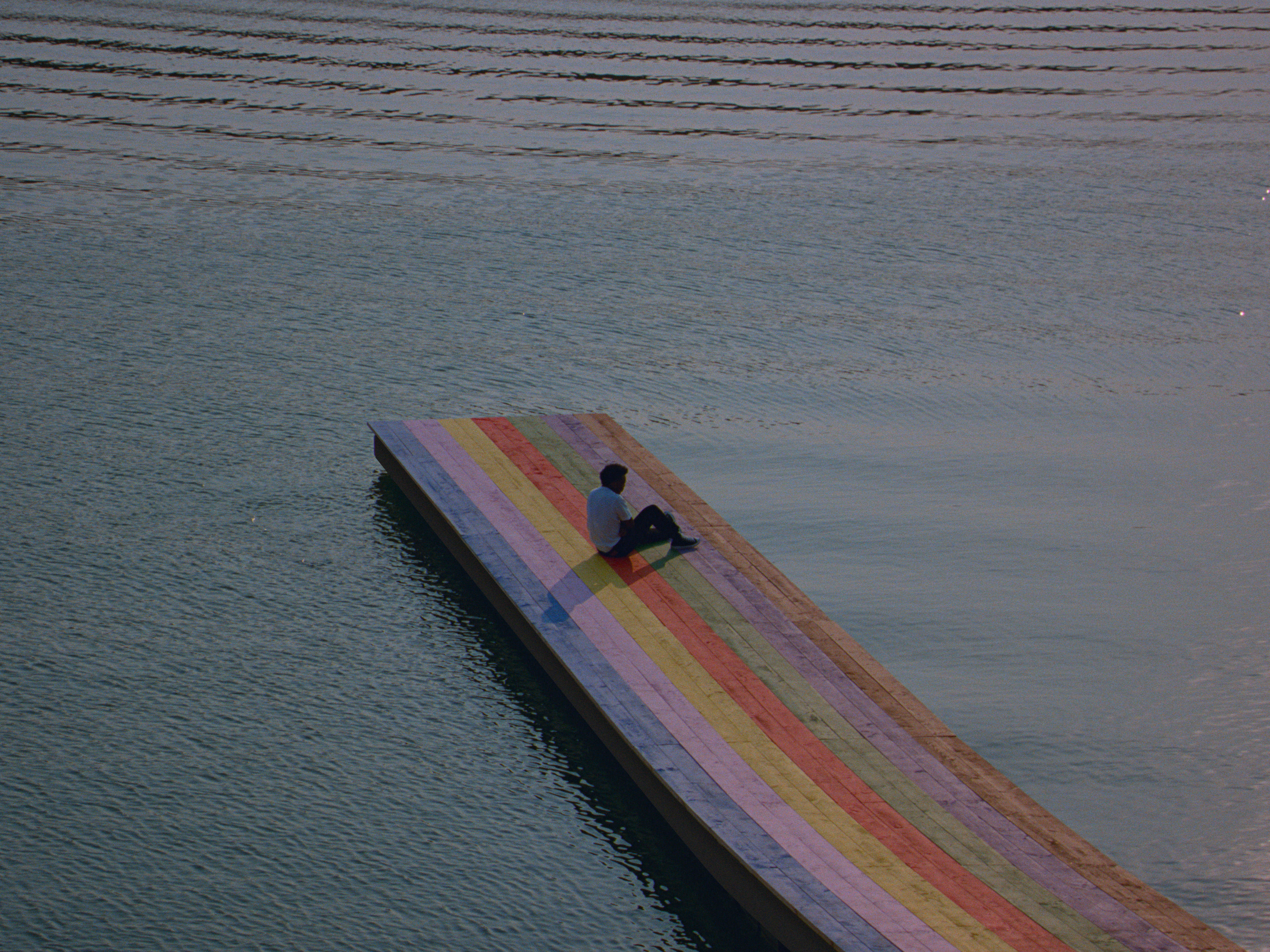
Cover of The Melodic Blue by Baby Keem, 2021. Photography by Dave Free.

N95, (2022) by Kendrick Lamar. Directed by Dave Free.

N95, (2022) by Kendrick Lamar. Directed by Dave Free.
What is it like to create now that you’ve built this structure with an expansive network yourself?
It’s so dummy! We have truly intelligent, thoughtful people around us that run all decision making, from Cornell Brown and Jamie Rabineau to Jared Heinke and Anthony Saleh. We put out really good energy and we attract the best people to grow with. We’ve planted our flag in music, products, and film, but we don’t want to be pinned down. We’re growing in terms of artist management and development, and in many other aspects of our business. We just don’t subscribe to this concept of overconsumption with no value or purpose. People look to us and expect a certain quality of information, understanding, and communication. If we can execute our ideas on multiple fronts, then I think we establish ourselves as a company that’s going to be around for a long time. It’s not just about the financial gain — it’s about impact. Want to know one of my favorite lyrics? It’s by 50 Cent: “Homie, you’re hustling backwards if you’re chasing a chick/ Stupid, chase the paper — they come with the shit.” He wasn’t just talking about money and relationships — he was talking about how chasing the dream gets you everything you need. He simplified it for the youth, which was me at the time. Don’t chase the thing that you want, chase the thing that gets you that plus more — that gets you everything that you deserve.
What have you learned from taking things into your own hands and doing them yourself? When did you learn how to bring people into projects and collaborate effectively?
I’ve learned that it’s really important to keep your energy focused not just on the actual creative process but on its execution, which, I would say, is harder to get right. People can think of a million ideas every day, but what ideas should be championed depends on balancing your budget and making sure that the idea resonates with people. I learned how to bring the right people together when I was quite young, and I’m grateful for that ability. We started the company because most artists don’t know how to communicate with corporate structures and these executives don’t know how to reach the artists. We wanted to find our place in the middle and teach artists that they can make the best version of their art while still giving a shit about their bottom line, because those resources help you to continue to build on your dreams.

Propaganda, (2020). Directed by Dave Free for pgLang.

I'mma Slide, (2022). pgLang for Calvin Klein. Directed by Dave Free.
What is the bottom line?
Sometimes I’ll meet an artist and they’ll express how the work has to be about their initial idea because they confuse constructive feedback with fleeting control. I explain to them that true artistry is about learning and collaboration. True creativity connects everyone. It’s not selfishly created for personal consumption for an elite few —it’s for everyone. It’s important to create with the future in mind. This is where impact and influence come into play. I love when I meet kids and they tell me our work is on their reference board. Even when I see people using our style, I champion them. The work is for everyone — be inspired and use it to create. You’ll never hear me tear down another artist because they borrowed from us. Take what you can get from it and collaborate to make something beautiful. If we all operated like this, we’d have a better system with more innovative work.
Where do you want this to go?
I want Seinfeld, and not in the sense of the show.
[Laughs.] Of course. You want the structure, impact, rigor, acclaim, and influence of Seinfeld.
We want Michael Jackson’s Thriller. You know what I’m saying? We want The Matrix. We want to play on that level. I want the team to thrive and communicate on a different plane. When people see anything with pgLang’s name on it, I want them to know it’s something they need to be present with and give attention to. It’s about achieving a certain level of connectivity in a world where we overconsume. If we do not aim for that level of success, then why try?
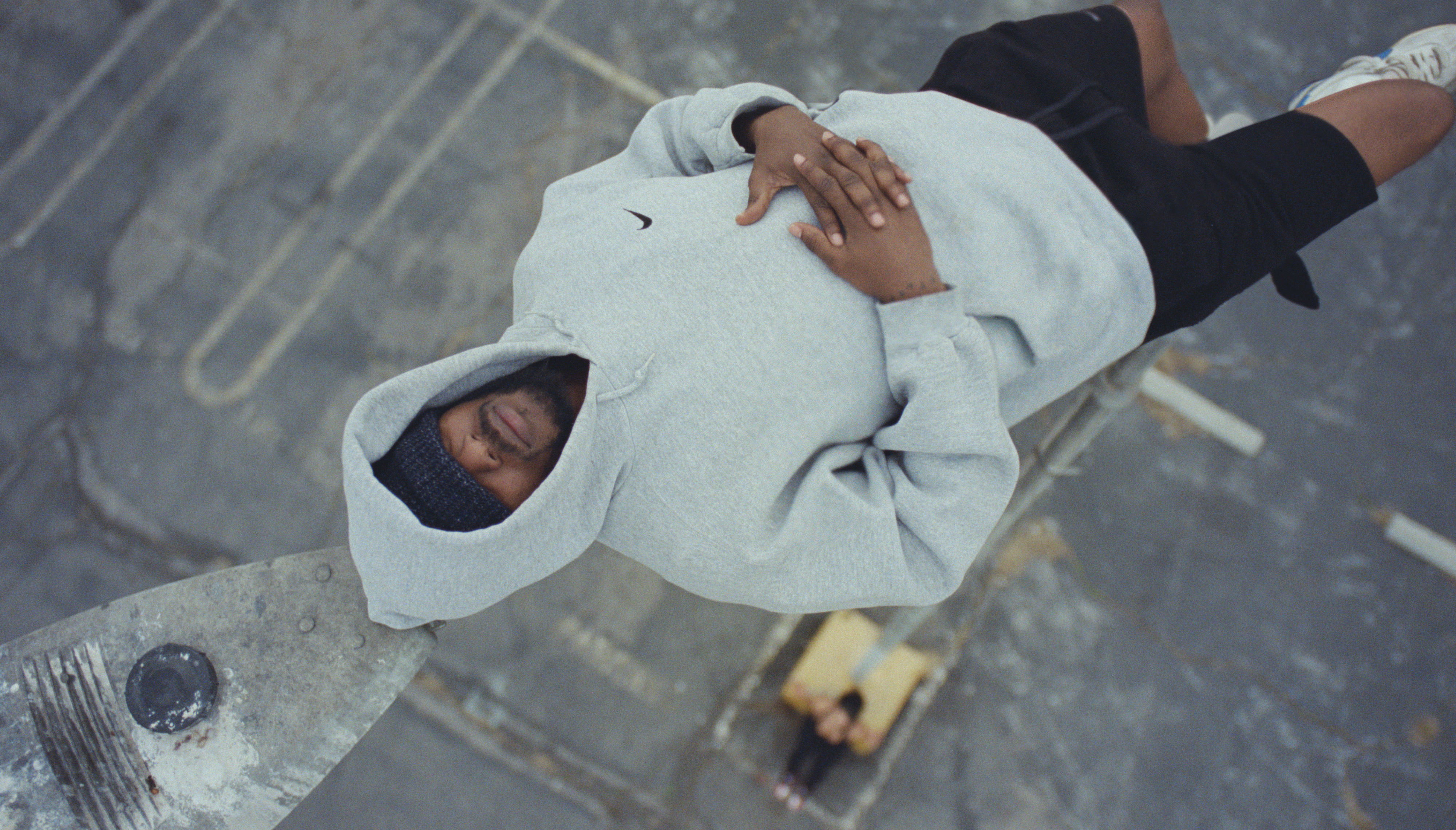
Propaganda, (2020). Directed by Dave Free for pgLang.